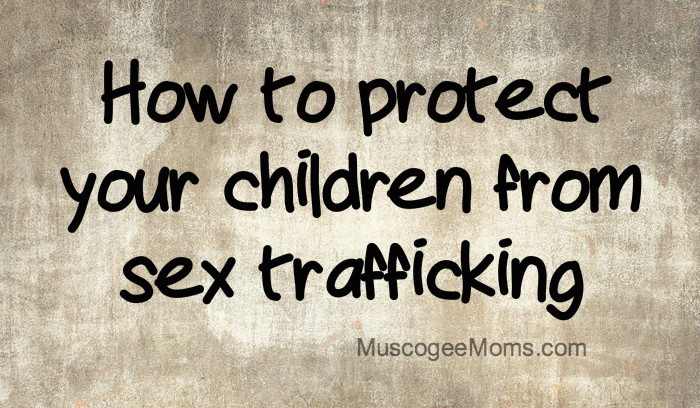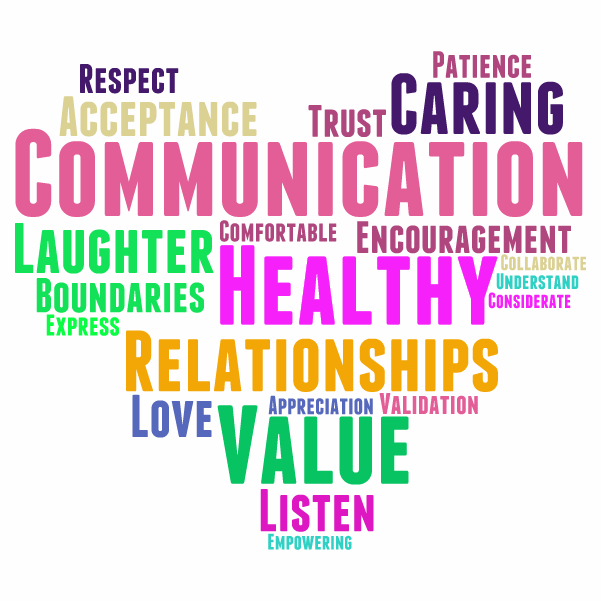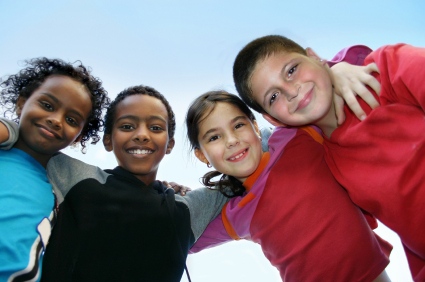Recently, Muscogee Moms had the opportunity to attend a community roundtable on child sex trafficking. People from across the state of Georgia attended this event to learn more about this issue and how to handle it.
Domestic minor sex trafficking (DMST) — colloquially known as “child prostitution” — occurs when American children (under the age 18) are sold or exploited for purposes of sex. These children are victims and survivors of rape.
As a parent myself, the thought of anyone abusing or sexually assaulting a child, sickens me. It begs the question, “What can I do to protect my own children?”
Here are 6 ways you can protect your children from sex trafficking.
Remember, each child has different levels of understanding, so keep the conversation age appropriate.
1. Talk with your children about healthy and safe relationships.
One of the most important things you can do to protect your children is to create an environment in which he or she feels comfortable talking with you. Keep the conversation open, honest, and loving.
Talk to your children about the difference between real love and empty promises. Talk to them about what it takes to recognize, develop, and maintain a healthy and safe relationship. Help them to set expectations for how they want to be treated. Teach them how to recognize the signs of an unhealthy relationship and explain what healthy sexuality looks like. If you need help starting this conversation, visit fightthenewdrug.org.
2. Talk to your children about sexual abuse.
Talk to your children about sexuality and sexual abuse in age-appropriate terms. Teach them that some parts of their bodies are private. Teach them boundaries and that it’s okay to say “no” to touches that make them feel uncomfortable or scared. Let your children know that if anyone has or ever does hurt them, they can talk to you. Leave the door open for your child to talk about past circumstances that they haven’t shared with you.
3. Talk to your children about sex trafficking.
Discuss ways children and teens are targeted for sex trafficking. Let them know that traffickers specifically try to woo young girls and boys with promises of a better life – whether it’s promises of love and attention or promises of nice things and trips – these pimps look for ways of exploiting dreams. Traffickers can be male or female, even classmates. Traffickers may even use kids to recruit other kids. Encourage your kids to let you know if they encounter an uncomfortable or potentially dangerous situation.
4. Talk to your children about social media safety.
It’s important to provide practical safety tips like:
- Don’t share personal information on the Internet
- Don’t accept Facebook requests from unknown people
- NEVER share naked photos of yourself with anyone
- Tell a parent or a trusted adult if you feel threatened or uncomfortable online
Stress to your kids that they should not interact with strangers online, and explain that many people on social media are not who they say they are.
Be aware of what apps your children are using and what those apps do. Monitor their social media accounts. Discuss the dangers of revealing too much information on social media, and explain that it gives ammunition to strangers with bad intentions.
5. Pay attention to your children.
Give your children your time and pay close attention to them. Paying attention means more than being physically present. It means learning how to listen to your kids, how to talk with them, and how to respond to their actions. If you don’t really know your child, how will you understand what’s wrong when things go wrong? How will you pick up the clues when your kid is flirting with trouble? So put your phone away (and confiscate theirs).
6. Know the warning signs of trafficking.
According to national statistics, most children who are trafficked have a history of sexual abuse from earlier in their childhood. Noticing the warning signs of abuse can help these children receive the services they need so they are not further victimized. The most vulnerable population are homeless, runaway, and foster children. However, victims have diverse racial, ethnic and socioeconomic backgrounds.
The United States Department of Justice, National Sex Offender Public Website is a great source of information for parents about this topic and offers a searchable database: http://www.nsopw.gov
If you suspect human trafficking, call the National Human Trafficking Resource Center toll-free at 1-888-373-7888.





